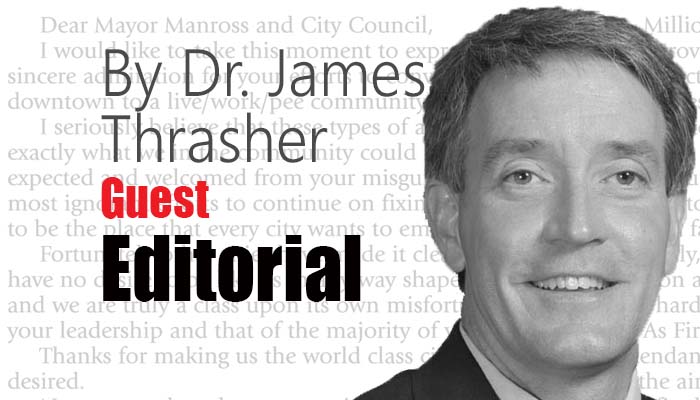Peter Strzok, the former deputy assistant director of the Counterintelligence Division of the FBI, testified on July 12 before two House Committees. In his opening statement, he said: “Let me be clear, unequivocally and under oath: Not once in my 26 years of defending my nation did my personal opinions impact any official action I took.” But during his 10-hour testimony, he either was disingenuous or unwilling to be honest about the fact that every person on earth lives, breathes, and acts upon personal convictions. Agent Strzok needs to take the college freshman Humanities course which changed my life. In that class, I learned that underlying all that we think, say, and do are basic assumptions that form what is called a worldview. In the simplest of terms, a worldview is a set of beliefs about the most important issues of life.
Indelibly imprinted in my memory is watching my college Humanities professor don an over-sized set of brightly colored clown glasses as he told the class that everyone has a set of lenses through which they see, judge, and interpret the entirety of life. Every person alive has a perspective into which they consciously or unconsciously fit everything they believe and by which they interpret and judge reality. Strzok’s more than 50,000 texts and emails sent to his extramarital lover and FBI attorney Lisa Page about Hillary Clinton, Donald Trump, and others, are evidence of the all-encompassing worldview which guides every aspect and dimension of his life. Strzok showed us the prescription of his lenses through the content of his text messages and through his public explanations of the intent of his words.
One of the presumed goals of the House Committees was to ascertain whether the texts established a biased personal position. Then, if bias was affirmed, whether it affected his decisions and actions at the bureau. Agent Strzok stated during his televised testimony that “at no time did my personal beliefs affect my decisions.” Who is he trying to kid? His claim that someone can be completely unbiased truly is absurd, and many were not buying what he was selling. In a Washington Post article, Rep. Mark Meadows was quoted as saying that Strzok’s words “left lawmakers unconvinced that political bias did not factor in some of his decisions.” The article went on to say that “even the inspector general admitted that bias certainly could have had an indirect effect [on decisions] because of Strzok’s role.” Wolf Blitzer from CNN even went so far as to call his biased explanations “damning.”
Was Strzok’s bias related to specific individuals and circumstances, and did his bias affect his reasoning, decisions, and actions? Based on the pervasiveness and comprehensiveness of every person’s worldview, the answer is clear. Yes, and yes! What a person says, does, and thinks expresses his or her most deeply held values, beliefs, and commitments. They cannot be separated. This direct relationship is inescapable for all individuals. Strzok’s worldview drove how he saw, interpreted, and acted upon the circumstances that surrounded him at the FBI.
A person cannot isolate and then prevent his political and personal views from being thoroughly integrated in his overall life philosophy. That philosophy is the rudder guiding all other thoughts and actions in life. A true understanding of a worldview unequivocally affirms that the bias revealed in the texts did, indeed, affect Peter Strzok’s intentions, decisions, actions, and conclusions at the FBI.
—Dr. Jim Thrasher is the Senior Fellow of Grove City College’s career services office and the coordinator of the Center for Vision & Values working group on calling.





